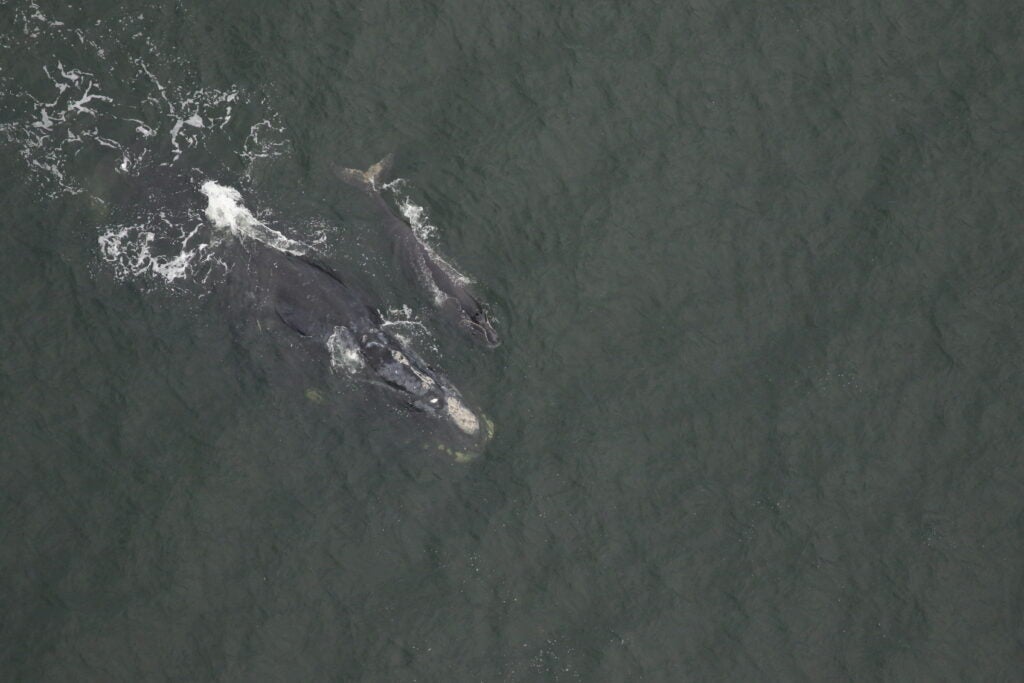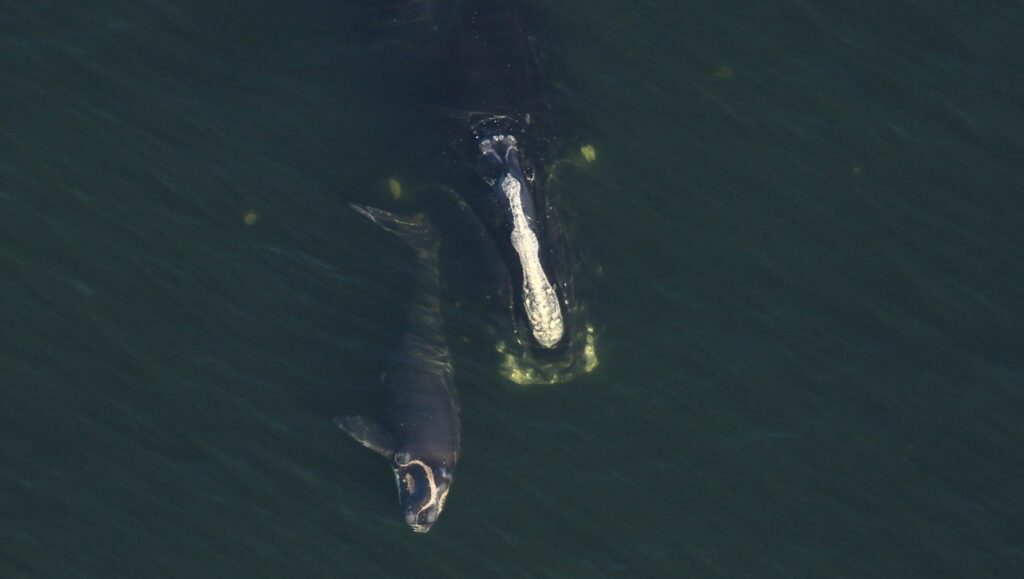January 22, 2025
Celebrating New Beginnings in 2025: Four Right Whale Calves Spotted Off Florida Coast
Estimated reading time: 0 minutes
BY: Hanna Vatcher
The 2025 New Year celebrations began with exciting news as the National Oceanic and Atmospheric Administration (NOAA) reported seeing four North Atlantic right whale calves swimming alongside their mothers off the coast of Florida.
Calving season
The North Atlantic right whale calving season usually starts around mid-November and extends into springtime with new births happening as late as April. While four calves were born in December 2024, January 2025 started with four more births, bringing the calving season total to eight, so far. As there are only an estimated 70 reproductive females remaining, every new calf offers hope for this critically endangered species.
Meet the moms from late 2024
- A first-time mother gave birth to her calf on November 24 off Cape Romain, South Carolina, but the mother has yet to be identified.
- Nauset #2413 gave birth to her fifth calf in early December off Sapelo Island, Georgia.
- Black Heart #3540 was seen with her calf on December 30, 2024 off Ponte Vedra, Florida by the Florida Fish and Wildlife Conservation Commission . Black Heart is named for the heart-shaped bare spot at the front of her callosity. She is 20 years old, and this is her second known calf.
- Minus One #2430, a 31-year-old right whale, gave birth to her fourth calf and was seen on December 9 off Amelia Island, Florida. She previously gave birth to two female calves in 2007 and 2010, with a third calf in 2021 after a gap of 11 years.

Meet the moms from 2025
- Caterpillar #3503 was seen with her first calf at the beginning of January off Ponte Vedra, Florida.
- Right whale #4540 is a 12-year-old mom. She was seen with her first calf near Back Bay National Wildlife Refuge in southern Virginia.
- Grand Teton #1145 is one of the oldest mothers this year. She gave birth to her first calf in 1981. Researchers have catalogued seven of her eight calves. Unfortunately, both of her daughters and their offspring are either dead or presumed dead.
- Checkmark #3705 is an 18-year-old first-time mom. She is the daughter of the well-known right whale Smoke.

Credit: Taken by Florida Fish and Wildlife Conservation Commission under NOAA permit 26919.
We send big congratulations to Nauset, Minus One, Black Heart, Caterpillar, Grand Teton, Checkmark, and all the unidentified moms! We’re so happy to meet your calves!
Counting RIGHT WHALE Calves
Right whales typically give birth to a single calf following a yearlong pregnancy. A three-year interval between births was once considered normal and healthy. However, researchers now believe that stress from threats such as entanglement in fishing gear and collisions with vessels have significantly increased the time between pregnancies. Currently the gap between pregnancies ranges from seven to 10 years.
As this year’s calving season gets underway, we remain hopeful for continued right whale sightings. Each new right whale calf is a step forward to rebuilding the population that has fallen to the brink of extinction. Since 2020, the number of calves born has varied from 10 to 20 a year. Let’s hope that this is the best birth year yet with lots of healthy and happy whales.
| Year | Right whale calves |
| 2020 | 10 |
| 2021 | 20 |
| 2022 | 15 |
| 2023 | 12 |
| 2024 | 20 |
Help the mother calf pairs
Click here to help save right whales, call on the Canadian government to protect them >>

